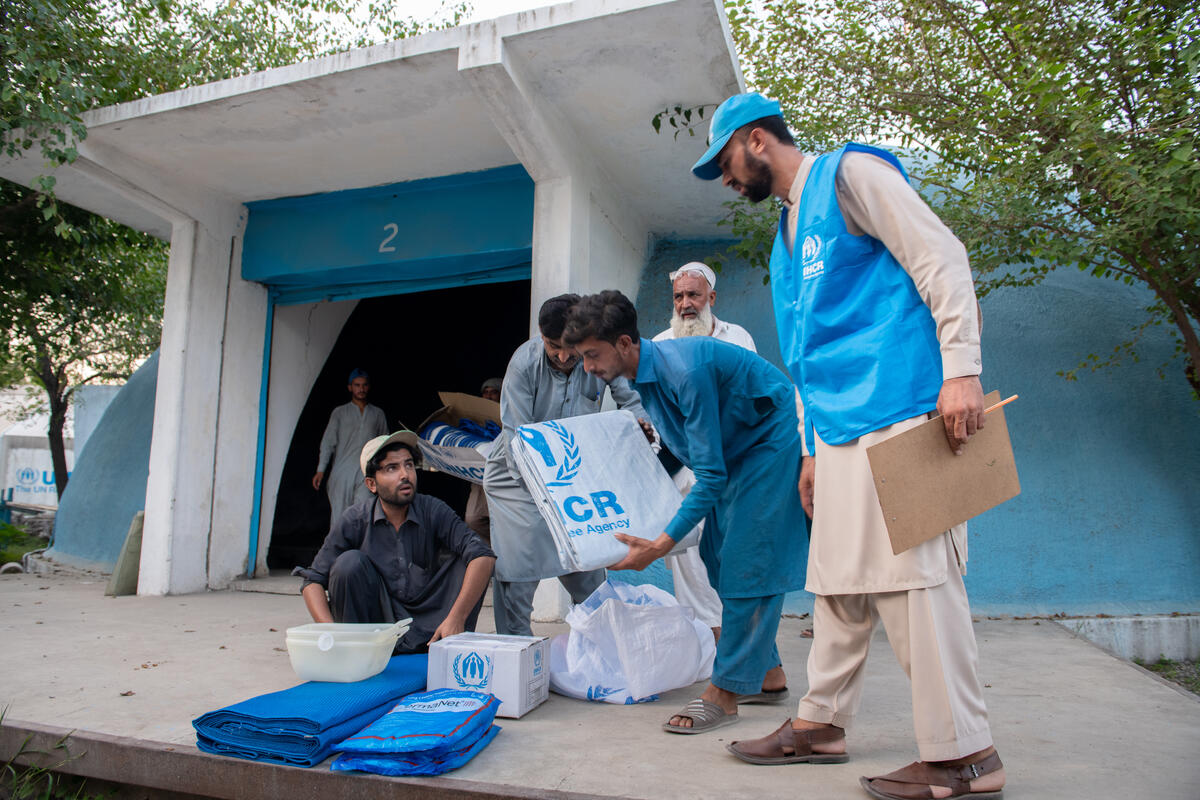UNHCR delivers aid to Syrians in eastern Aleppo for first time in 2015
UNHCR delivers aid to Syrians in eastern Aleppo for first time in 2015

DAMASCUS, Syria, March 13 (UNHCR) - The UN refugee agency and the Syrian Arab Red Crescent have been able to deliver urgently needed aid to thousands of people in eastern Aleppo for the first time since last October, thanks to a temporary ceasefire.
The six-hour truce between government and anti-government forces last Sunday enabled the aid workers to deliver medicine, medical supplies and winter clothing as we'll as food supplies from the World Food Programme to more than 7,000 people in the hard-to-access Bustan Al-Qasr, Al-Ansari, Al-Firdos, Al-Sukari and Mwasalat neighborhoods of Syria's second largest city.
The temporary humanitarian truce was negotiated by UNHCR and the Syrian Arab Red Crescent and allowed aid workers to offload the precious aid from UNHCR trucks at the Bustan Al Qasr crossing point, before it was put on 45 carts and pulled across the frontline. It took several trips to complete the operation.
The winter clothes were given directly to children in schools, while the medical supplies and food were delivered to the Al-Zarzour Hospital, which will coordinate further distribution to medical facilities in the area.
"It demonstrates how good coordination with various parties can facilitate access to the most vulnerable in hard-to-reach areas," said Amin Awad, director of UNHCR's Middle East and North Africa Bureau.
Eastern Aleppo has suffered particularly badly since the Syria crisis began in March 2011, but despite the fighting it is still home to an estimated 600,000 people. The humanitarian situation has deteriorated since UNHCR last accessed eastern Aleppo districts in October 2014, with people facing difficulty accessing basic services and acute shortages in food, medicine, medical supplies, water, and hygiene facilities.
Last year, UNHCR provided core relief items to more than 4.5 million people across the battered country, including 1 million living in hard-to-reach and besieged areas. As the crisis enters into its fifth year, there are some 12.2 million people in need of humanitarian assistance inside Syria. This includes 7.6 million displaced within Syria, of whom 5.6 million are children.








